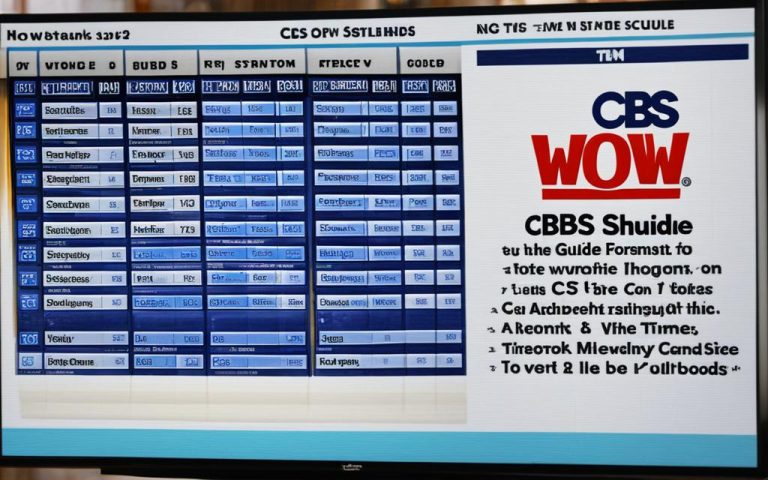A network technician is a key professional who checks, tests, and fixes network systems. They make sure networks like LAN, WAN, cloud networks, and servers work well. You can find them in IT, telecom, and healthcare. Their skills are in demand as companies need networks to work well and safely.
Network technicians have special skills to do their job well. Recent stats1 show computer science is a top skill, needed in 17% of job ads. Technical support is also key, seen in 16% of ads. These skills show how important technical skills are for fixing network problems.
They also need common skills to work well with others. Being good at communication is crucial, as they talk to colleagues, clients, and users. Stats1 say communication is a top skill, in 50% of job ads. Skills like troubleshooting and problem-solving are also important, found in 39% of ads. These skills help them quickly find and fix issues.
Skills in customer service and management are also wanted. According to stats1, 37% of jobs need customer service skills, and 33% need management skills. These skills help them give great support to users and manage projects well.
Network technicians need to know a lot about different areas to do their job. Stats1 show LAN and network switches are key skills, seen in 10% of job ads. Firewalls and WAN are also important, in 10% and 9% of ads, respectively. This knowledge lets them set up, secure, and keep network devices running right.
Key Takeaways:
- A network technician checks, tests, and fixes network systems to keep them running smoothly.
- Skills like computer science and technical support are very wanted in network technicians.
- Good communication and problem-solving skills are key for working well with others and solving problems.
- Skills in customer service and management help network technicians support users and manage projects.
- Knowing about LAN, WAN, firewalls, and switches is important for setting up, securing, and keeping devices in networks.
Now, let’s look closer at the role of a network technician and the industries they work in.
What is a Network Technician?
A network technician is key in keeping networks running well. They make sure everyone can connect and communicate easily. They check, fix, and improve networks like LAN, WAN, and cloud ones. This keeps data flowing smoothly without interruptions2.
For this job, you need experience in network tech or similar roles2. Having CCENT/CCNA certifications is a big plus. These show you know your stuff about networks and protocols2.
Jobs for network technicians get shared on over 200 job boards at once2. This helps find the right people for the job2.
They should know a lot about LAN/WAN networks, TCP/IP, and network tech2. They fix problems, check how well the network works, and find ways to get better2. Working with network engineers, they make networks that work well for everyone2.
Network technicians do more than just set up networks2. They keep an eye on how the network is doing, fix issues, and make sure everything runs smoothly2.
They keep up with new tech and security to protect the network3. They help keep the network safe from hackers, teach others about the network, and suggest ways to make it better3.
They also set up new networks and put in servers, routers, and computers3. They help users, set up software, and make sure devices and printers work right3. This keeps everything running smoothly and data flowing well3.
Fixing and making the network better is a big part of their job3. They help people use the network for their work, stop problems before they start, and keep downtime low3.
They also teach users about the network and keep documents up to date3. This helps everyone work together better and use the network fully3.
Industries that Employ Network Technicians
Network technicians are key in many fields, making sure everything runs smoothly and stays connected. They’re needed in IT, telecommunications, healthcare, finance, and education, among others. The IT industry, especially, has a lot of network technician jobs because it always needs network support and upkeep.4
In the IT world, network technicians are vital. They set up and keep networks running, fix connection problems, and protect data. Their work is crucial for sectors like software development, cybersecurity, cloud computing, and more. Telecommunications companies also need them to keep communication services running without a hitch4.
Healthcare relies on network technicians to keep medical and diagnostic equipment connected. They make sure doctors and nurses can talk to each other and send patient data safely. This helps doctors give better care faster, making healthcare better for everyone4.
Financial institutions count on network technicians for secure networks. They work with IT teams to fix connection problems, add security, and protect financial data. This keeps banking safe and reliable4.
Education needs network technicians too. They keep networks running in schools, colleges, and universities. This lets students, teachers, and staff use online resources and educational apps without trouble. Network technicians make online learning work smoothly4.
The need for network technicians is growing as more businesses use technology. With new networking and communication tech, skilled network technicians are key. They keep networks running well and securely in many areas4.
Specialized Skills for Network Technicians
Network technicians are key to keeping computer networks running smoothly. They need special skills to fix and manage these networks well.
Employers look for certain skills in network technicians. These skills include:
- Computer Science expertise: Knowing computer science helps technicians understand networking and solve problems.
- Technical Support abilities: Good technical support skills are needed to help users with network issues.
- Operating Systems knowledge: Knowing different operating systems like Windows, Linux, and macOS helps technicians solve problems on various platforms.
Project Management skills are also useful. Network technicians work on projects like upgrading networks or installing systems. These skills help them plan and carry out these projects well.
Network technicians also need common skills to do their job well. These skills are:
- Effective Communications: They must communicate well with colleagues, clients, and users to explain technical stuff and solve problems.
- Problem-Solving abilities: They need to quickly find and fix network issues.
- Customer Service skills: Good customer service is key as they often talk directly with users, making sure they’re happy with the network.
- Management skills: They might manage network resources, check network performance, and keep it secure, needing good management skills.
The need for network technicians is growing, making specialized skills and knowledge more important. Employers look for certifications like CompTIA A+, CompTIA Network+, and Cisco CCNA. These certifications show a technician’s skills and knowledge in certain areas, making them stand out in the job market5.
Statistical Data from Link 2 |
||
|---|---|---|
| Job Opportunities for Computer and Network Systems Administrators estimated growth rate from 2016 to 2026 | 6% | 6 |
| Average Annual Salary of a Field Network Technician in the United States | $51,600 | 6 |
| Average hourly rate charged by Freelance Technicians | $16.16 | 6 |
| Number of engineers registered on the Fieldengineer.com platform for specialized roles | Over 40,000 | 6 |
Getting real-world experience is key for network technicians. Practical training, hands-on knowledge, and working in different networks improve problem-solving skills. This experience can come from internships, entry-level jobs, or networking projects5.
Common Skills for Network Technicians
Network technicians need more than just special skills to do well. They must have common skills for good communication, solving problems, fixing issues, and helping customers. These skills help them succeed in their jobs.
Good communication is key for network technicians. They talk to colleagues, clients, and users to understand their needs and fix problems. They make complex tech ideas simple for everyone to understand.
Being good at troubleshooting is crucial too. Technicians must find and fix network problems, like hardware or software issues. They use methods to figure out problems, find the cause, and solve them quickly, keeping the network running smoothly.
Customer service is a big part of a technician’s job. They work with clients who have tech problems. Being able to listen, understand, and quickly solve their issues is important. This makes customers happy and loyal.
Managing their work is important for technicians. They need to organize tasks, set priorities, and meet deadlines. Doing this well helps them work efficiently and finish projects on time.
“10 out of the 15 network technician responsibilities and skills involve hands-on technical aspects such as configuring and maintaining network equipment, troubleshooting network problems, and installing various devices like routers, switches, and firewalls.”7
“Technical support is an essential skill mentioned in 8 out of the 15 network technician responsibilities and skills, emphasizing the importance of providing assistance to customers or end-users facing technical difficulties.”7
“Troubleshooting appears in 3 out of the 15 skills discussed for network technicians, demonstrating the importance of identifying and resolving network issues as part of their responsibilities.”7
“Network infrastructure maintenance and troubleshooting responsibilities are conveyed in 2 out of the 15 skills, portraying the significance of overseeing physical and virtual components of a network to ensure seamless operations.”7
“DNS management is highlighted in 1 out of the 15 skills, illustrating the importance of understanding and resolving domain name system issues for effective network operations.”7
| Common Skills for Network Technicians | Reference |
|---|---|
| Communication Skills | 7 |
| Troubleshooting Abilities | 7 |
| Customer Service | 7 |
| Management Skills | 7 |
Network Technician Job Description
A network technician is key in designing, setting up, and keeping computer networks running smoothly. They make sure information and communication flow well within a company. They handle LAN and WAN network devices8. These experts are very skilled and have the right qualifications to do their job well.
To be a network technician, you need a BSc in Computer Science or something similar8. You also need experience as a Network Administrator8. This makes sure they know a lot about networks and how they work.
Network technicians know a lot about WAN, LAN, TCP/IP, Firewalls, Routers, and Switches2kkk>. They use this knowledge to set up and keep network devices running right. They also fix network problems for users8. They find and fix issues with network hardware or software8.
They also make and keep network documents up to date8. These documents help with fixing problems, keeping the network running, and planning for the future. They need to be very organized and manage their time well to keep documents accurate and easy to find.
Good communication and customer service skills are a must for network technicians1. They talk to users to solve network problems. They help users use the network well and fix common issues. Knowing how to work with customers is key to keeping good relationships at work1.
There will be more jobs for network technicians as companies keep investing in technology and mobile networks9. The US Bureau of Labor Statistics says jobs for computer systems and network administrators will grow six percent from 2016 to 20269. This is because more industries use technology, showing how important skilled network technicians are.
Network technicians in the US make about $44,562 a year on average9. Freelancers make about $20.07 an hour, offering good earning potential9. These figures show that network technicians can have stable and growing careers.
In summary, network technicians are vital for keeping computer networks running well. They use their technical skills, education, and good communication to support networks in many industries.
Required Skills for Network Technicians
To be a top network technician, you need to have experience in network maintenance or a similar job. It’s important to have skills in diagnosing, solving problems, and analyzing issues. You should also be good at explaining technical stuff to others.
Knowing about LAN/WAN networks, TCP/IP protocols, and network technologies is key. Having hands-on experience with software and hardware is a plus. Getting CCENT/CCNA certifications and a degree in computer science or a related field is also good.
The average salary for network and computer systems administrators was $84,810 in May 202010. The lowest earners made less than $52,370, while the top earners made more than $132,52010.
Network technicians can move up to roles like Network Administrator, Network Engineer, or Network Manager10. These jobs are expected to grow 4% from 2019 to 202910.
Network technicians need more than just technical skills. Employers look for computer science skills in 17% of job ads and communication skills in 50%1. They also want skills in technical support, operating systems, and project management1.
Skills Desired by Employers for Network Technicians:
- Computer Science
- Communication
- Technical Support
- Operating Systems
- Project Management
- Network Support
- Local Area Networks
- Troubleshooting
- Customer Service
- Management
- Operations
Employers also want skills in local area networks, network switches, and firewall management1. Proficiency in help desk support, Linux, and networking hardware is also good1.
Leadership, planning, and Microsoft Office skills are also important1. Being good at verbal communication, sales, and self-motivation is also valued1.
In summary, network technicians need technical skills, good communication, and problem-solving abilities. With the right qualifications and experience, they can find promising careers in networking101.
Network Technician Responsibilities
A network technician is key in designing, building, and keeping computer networks running smoothly. They handle many tasks to keep networks working well.
One big job of a network technician is fixing issues like slow Internet, email problems, and broken equipment11. They must think quickly to solve complex problems11. All network technicians are skilled problem solvers11.
They do more than just fix problems. They also design networks, plan upgrades, and add security11. Their skills help keep networks stable and safe.
Network technicians design and set up computer networks2. They check LAN systems, fix issues, test software, and keep hardware running smoothly2. They also look at network performance, plan updates, and help other tech workers11.
Keeping up with new tech is a must for network technicians11. They need to learn about the latest tech to do their job well. These tech experts work in many fields that use computer networks a lot11. Their tasks change based on the company’s size and needs11.
Network technicians can move up to roles like network admin, systems engineer, or IT manager11. Moving up often depends on their skills, commitment to learning, and real-world experience.
In short, network technicians play a big role in keeping networks running well and safely. They solve problems, design networks, and keep learning. There are many career paths for them based on their skills and goals.
Requirements for Network Technicians
Starting a career as a network technician is exciting for those with the right qualifications. They need to have the knowledge and skills to handle the challenges they’ll face. This includes meeting certain requirements to excel in their roles.
First, a degree in computer science, information systems, or a similar field is recommended for network technicians12. Getting certifications like CompTIA Network+ and Network 5 Certification can also boost their career. These certifications show they’re skilled in the field.
Education and certifications are key, but practical experience is also valuable. Having hands-on experience lets technicians apply their knowledge in real situations. It helps them understand network systems and protocols better.
Good diagnostic, problem-solving, and analytical skills are crucial for network technicians. These skills help them find and fix network problems quickly. This keeps networks running smoothly and efficiently.
Being able to communicate well and work as a team is also important. Network technicians often work with other IT team members. Clear communication helps them solve problems together more effectively.
They also need strong customer support skills. Helping users with technical issues is a big part of their job. Being able to support users well shows they care and can solve problems effectively12.
Knowing about networking technologies is a must. This includes understanding switches, routers, LAN/WAN, and how to troubleshoot. This knowledge helps them set up and maintain networks, and support users.
In short, network technicians need certain skills and knowledge to do well. This includes a degree, certifications, experience, and skills in problem-solving, communication, and customer support. They also need to know about networking technologies. Meeting these requirements helps them succeed in this field and build strong network infrastructures.
Conclusion
Being a network technician is a fulfilling career with lots of chances for growth and better positions. The U.S. Bureau of Labor Statistics says this job will grow faster than average, by 6% from 2019 to 202913. People with certifications like CCNA make about $55,789 a year, which is more than those without13.
Certifications from companies like Cisco and CompTIA help network technicians stand out in the job market13. These certifications can lead to an 8% higher salary than those without them, showing they make a big difference13. Employers see these certifications as proof of a technician’s hard work and skills13.
As technology and networks become more important, more jobs will open up for network technicians14. Focusing on areas like network security or cloud computing can make your career and pay better14. But, things like experience, where you work, and the industry can also change how much you earn, which is usually between $50,000 and $70,000 a year14.
Network technicians are key in making and fixing network systems, helping businesses succeed in many fields. With the right skills, certifications, and qualifications, they can earn more, have more career options, and keep up with new technology131415.
FAQ
What is the role of a network technician?
Network technicians check, test, fix, and review network systems like LAN, WAN, cloud networks, and servers.
What industries employ network technicians?
Network technicians work in many fields, including IT, telecom, healthcare, finance, and education.
What specialized skills are required for network technicians?
They need skills in computer science, technical support, operating systems, project management, and network support.
What common skills are essential for network technicians?
Important skills include communication, troubleshooting, customer service, management, and problem-solving.
What does a network technician do?
They design and set up computer networks, connections, and cabling. They fix system failures and make sure networks work well over time.
What skills are required for network technicians?
Good candidates have experience in network maintenance or similar roles. They need strong skills in diagnosing, solving problems, and analyzing. Being able to communicate well is key for giving technical support and instructions.
What are the responsibilities of a network technician?
Their job is to design and install networks, connections, and cabling for best performance. They fix system problems, find and fix bottlenecks, and keep networks running smoothly.
What are the requirements for network technicians?
They should have a degree in computer science, information systems, or a similar field. Having a certified network professional accreditation, like CCENT/CCNA, is a plus. Prior experience in a similar role is also beneficial.
Source Links
- https://www.franklin.edu/career-guide/computer-network-support-specialists/what-do-network-technicians-do – What Do Network Technicians Do: Daily Work & Skills
- https://resources.workable.com/network-technician-job-description – Network Technician job description
- https://nupaths.org/what-does-a-network-technician-do/ – What Does a Network Technician Do?
- https://www.zippia.com/network-technician-jobs/what-does-a-network-technician-do/ – What Does a Network Technician Do? Roles And Responsibilities – Zippia
- https://www.ciat.edu/blog/careers-network-technician/ – How to Become a Network Technician: Requirements & More
- https://www.fieldengineer.com/skills/network-field-technician – Network Field Technician | Role, Responsibilities, Jobs, Salary
- https://www.zippia.com/network-technician-jobs/skills/ – Top 15 Network Technician Skills
- https://www.talentlyft.com/en/resources/network-technician-job-description – Network Technician job description template
- https://www.fieldengineer.com/skills/what-is-a-computer-network-technician – Computer Network Technician | Career, Description, Salary
- https://www.linkedin.com/advice/0/what-does-network-technician-do-skills-network-engineering-mhaue – What does a network technician do?
- https://www.rasmussen.edu/degrees/technology/blog/what-does-a-network-technician-do/ – What Does a Network Technician Do? Cracking the Code on This Versatile Role
- https://www.zippia.com/network-technician-jobs/ – How To Become A Network Technician: What It Is and Career Path – Zippia
- https://moldstud.com/articles/p-the-importance-of-certification-for-network-technicians – The Importance of Certification for Network Technicians
- https://facts.net/general/9-fascinating-facts-about-computer-network-technician/ – 9 Fascinating Facts About Computer Network Technician
- https://www.linkedin.com/pulse/exploring-role-network-technician-peter-argiropoulos – Exploring the role of Network Technician



















